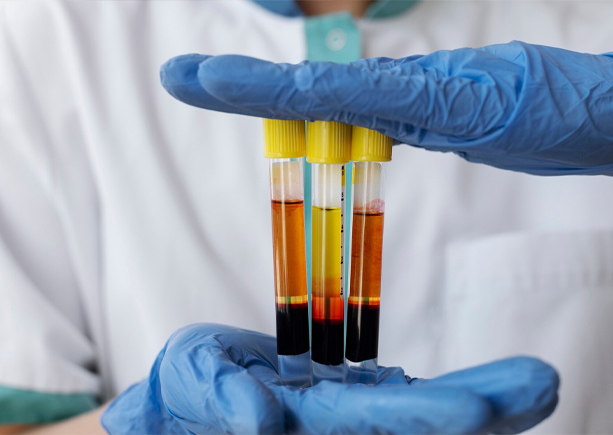Haematology
Hematology Department of Desun Hospital, Kolkata
Hematology Department of Desun Hospital, Kolkata

DESUN’s haematologists work closely with colleagues in medical and radiation oncology, transplantation and other specialties in the care of their patients.
Our state-of-the-art hematology laboratory is equipped with advanced diagnostic tools for accurate blood disorder detection and monitoring. The department specializes in treating various blood disorders, from common conditions like anemia and clotting disorders to complex cases of leukemia and lymphoma.
The department also provides personalized treatment plans that include innovative therapies and targeted treatments
This speciality involves managing blood diseases using the following tools:
Haemato-Oncology is a specialized field of medicine that deals with the diagnosis, treatment, and management of blood cancers and related disorders. It combines Hematology (the study of blood and blood disorders) with Oncology (the study of cancers). This discipline focuses on malignancies of the blood, bone marrow, and lymphatic system, which require highly targeted and multidisciplinary treatment approaches.
At the Haematology department in Desun Hospital, patients have access to treatments and surgeries carried out for almost all the types of blood diseases from Enlarged lymph nodes or spleen to Bleeding and clotting disorders, handled by experienced Haematologist in Kolkata.
